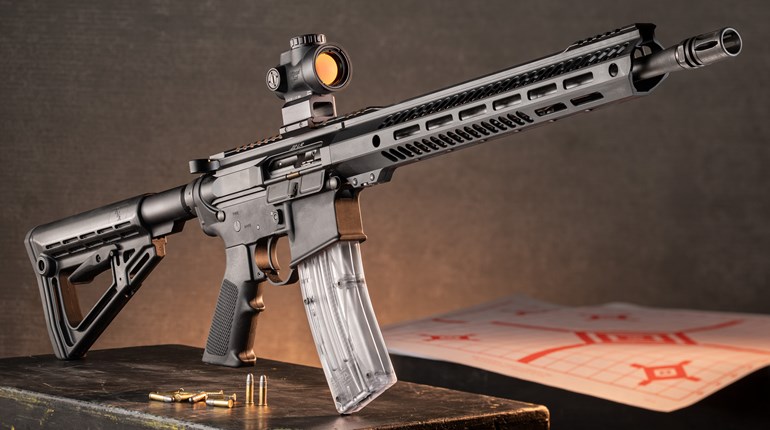
A federal court recently ruled that both the “good moral character” and “good cause” requirements of New York City’s law are unconstitutional under the New York State Rifle & Pistol Association v. Bruen (2022) ruling, the very decision that prompted the change in the laws in the first place.
In the case Joseph Srour v. New York City and Keechant Sewell, Judge John Cronan of the U.S. District Court for the Southern District of New York rejected New York City’s argument that the conduct challenged in this case is the possession of firearms by someone lacking good moral character, and the reason that such conduct is not protected under the Second Amendment is because such a person is not “responsible” and “law-abiding.”
“The Court disagrees,” Judge Cronan wrote. “The conduct at issue is the possession of a firearm. The question is whether such conduct in possessing firearms may be constitutionally regulated. Whether an applicant ‘lacks good moral character’ is not part of the conduct being regulated. The requirement that an applicant submit to a determination of moral character instead is the regulation itself. In arguing otherwise, Defendants impermissibly merge a person’s conduct with their status as defined by the regulation.
“Bruen, however, draws a clear distinction between the individual’s conduct and the regulation which burdens that conduct.”
Consequently, according to the court, the issue at hand was whether the Second Amendment is being violated by the state restricting the conduct of possessing a firearms.
“The Court therefore determines that the conduct at issue here—the possession of firearms for lawful purposes—is covered by the plain text of the Second Amendment,” wrote Judge Cronan. “The assessments of ‘good moral character’ or ‘good cause’ are regulations which the government must justify ‘by demonstrating that [they are] consistent with the Nation’s historical tradition of firearm regulation.’”
The court then took issue with the city’s attempts to prove the Bruen-required “historical precedent from before, during and even after the founding [that] evidences a comparable tradition of regulation.”
“Defendants have no more success in arguing that ‘Founding-era regulations restricted firearms sales to people that the Founders deemed dangerous or potentially dangerous,’” wrote Judge Cronan. “But a law preventing a person who is ‘dangerous or potentially dangerous’ from possessing a firearm is hardly analogous to denying someone their Second Amendment rights based on a City official’s discretionary determination that that person ‘lacks good moral character’ or that ‘good cause’ exists.”
In the end, the court had substantial objections concerning the “vast discretion” bestowed upon firearms licensing officials regarding regulating the right of citizens to keep and bear arms.
“Having considered Defendants’ proffered historical materials, and applying the standard set in Bruen, the Court determines that the magnitude of discretion afforded to New York City licensing officials under subsections (a)(2) and (a)(9) of Section 10-303 of the New York City
Administrative Code and the pre-December 16, 2022, versions of Sections 3-03 and 5-10 of Title
38 of the RCNY, empowering them to evaluate an applicant’s ‘good moral character’ and ‘good cause’ in deciding whether to permit that applicant to exercise his or her Second Amendment rights, is not constitutionally permissible under the Second and Fourteenth Amendments,” the court concluded.
Most America’s 1st Freedom readers likely remember how, last year, following the blockbuster Supreme Court decision in Bruen, the New York legislature quickly passed an equally bad law concerning the state’s gun-licensing procedure.
At issue was the state’s “proper cause” requirement, which gave state officials an open invitation to turn down carry applications for just about any reason they could come up with. The new law’s “good moral character” requirement gave the same power—albeit hiding under a new label—to state officials, but also added a new interview process for applicants, along with a new training process that requires 16 hours of specific training, including two hours of live-fire training.
New York City followed suit, making requirements there even more onerous. NYC’s amended law kept its earlier “good moral character” and “good cause” language, along with amending the definition of “good moral character,” to match the new state law.
Thankfully, this overreach from New York City has been struck down, much like the previous unconstitutional regulations before it.


































